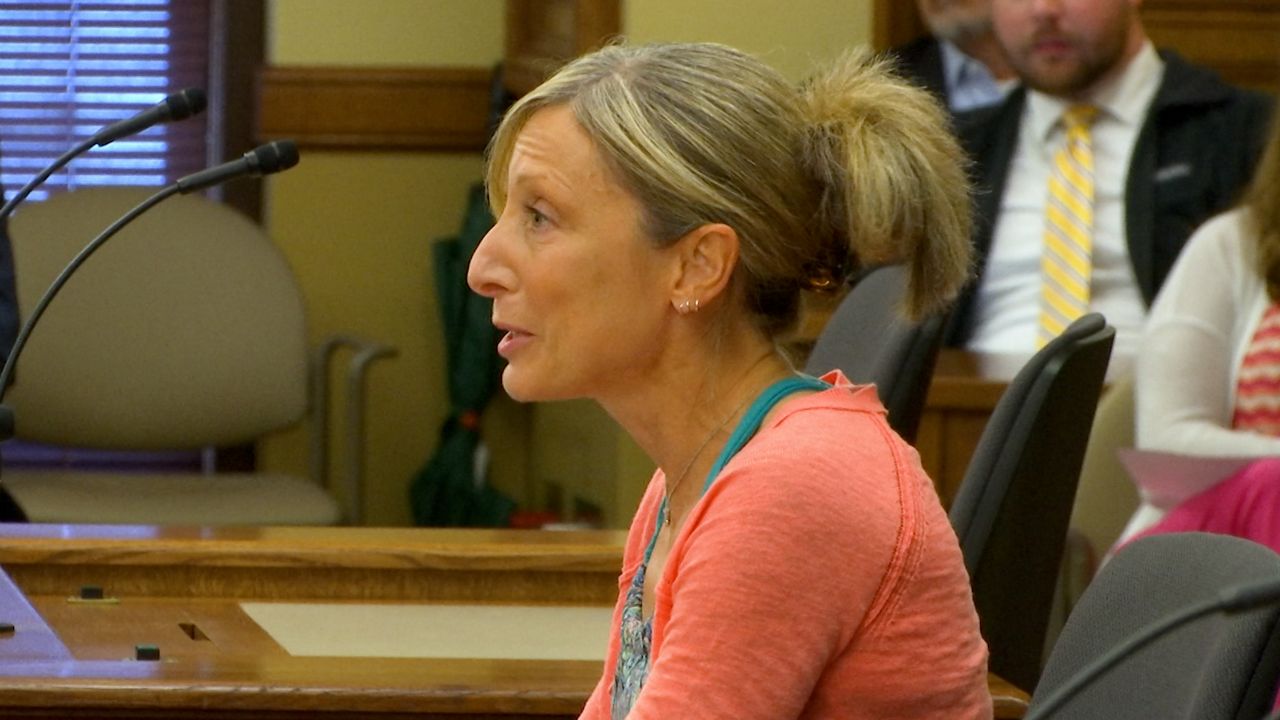MADISON, Wis. — State lawmakers heard public feedback this week on a bill which aims to increase access to potentially life-saving breast imaging.
For those with dense breast tissue, and those with an increased risk of cancer, some lawmakers want to eliminate the patient’s share of the cost for screenings.
So far, the bipartisan bill has been co-sponsored by more than one-third of the Legislature.
The effort is hardly a new one. It builds off a 2017 law which requires patients to be notified if they have dense breast tissue after receiving a mammogram.
State Sen. Rachael Cabral-Guevara, R-Appleton, authored a bill to require health insurance policies to cover supplemental or diagnostic breast exams for those with a higher risk of cancer at no cost to the patient.
“We came together and came up with legislation that would ask the insurance companies to cover not only the mammogram but further if you had dense breast tissue,” Cabral-Guevara told her colleagues on the Senate Committee on Health during a public hearing Wednesday.
Dense tissue can hide cancer, as was the case for Ann Zietlow of Madison, who received her diagnosis in May of last year, despite having her first mammogram in 2018.

“The anger only intensified when I learned that standard mammography misses up to 40% of cancers in dense breasts,” Zietlow told lawmakers. “I became angry when I learned that finding cancer in dense breast tissue on a standard mammogram is like finding a snowball in a snowstorm.”
For the 40% of women with dense breast tissue, according to the Centers for Disease Control and Prevention (CDC)—a typical mammogram may not be enough.
A study commissioned by Susan G. Komen for the Cure found out-of-pocket costs for additional screenings, including diagnostic, can range from an average of $234 to more than $1,000.
R.J. Pirlot, who serves as the executive director of the Alliance of Health Insurers, which is opposed to the bill, told lawmakers without a patient co-pay, those prices will raise costs for everyone.
“Unfortunately, the legislation before you, though well intended, suggests that by simply having heterogeneous or extremely dense breast tissue a woman should have supplemental breast screening or a diagnostic breast examination. We don’t believe the latest science supports this,” Pirlot said. “In this bill, prohibiting any cost sharing of essential breast screening beyond mammography means the cost of the enhanced imaging, which can be 10 to 15 times more expensive than a mammogram, will be paid for by all insured, raising costs for everyone.”

Current state law requires health insurance companies to pay for one annual mammogram for women starting at age 50 and up to two mammograms for women ages 45 to 49 based on certain criteria.
Lawmakers who favor the bill argue concerns about costs were also a factor when those requirements were passed back in 2007.
“Since we’ve been through this, you know, down this road before, about simply requiring insurance companies to pay for [a] mammography, now what we’re doing is having them take it a step further because we know more with technology and more women [are] finding out about dense breast tissue,” State Sen. Tim Carpenter, D-Milwaukee, said. “My sister had it, and she had no idea.”
Similar legislation was introduced in the past. However, there have been a few changes from the previous version of the bill, including:
- Reducing the $50 patient co-pay to zero
- Changing terminology to cover “supplemental screenings” as opposed to “essential screenings”
- Using the National Comprehensive Cancer Network guidelines to determine what is considered an increased risk
If the bill is passed out of committee and approved by the state Senate in the fall, the legislation would then go to the Assembly.


